News
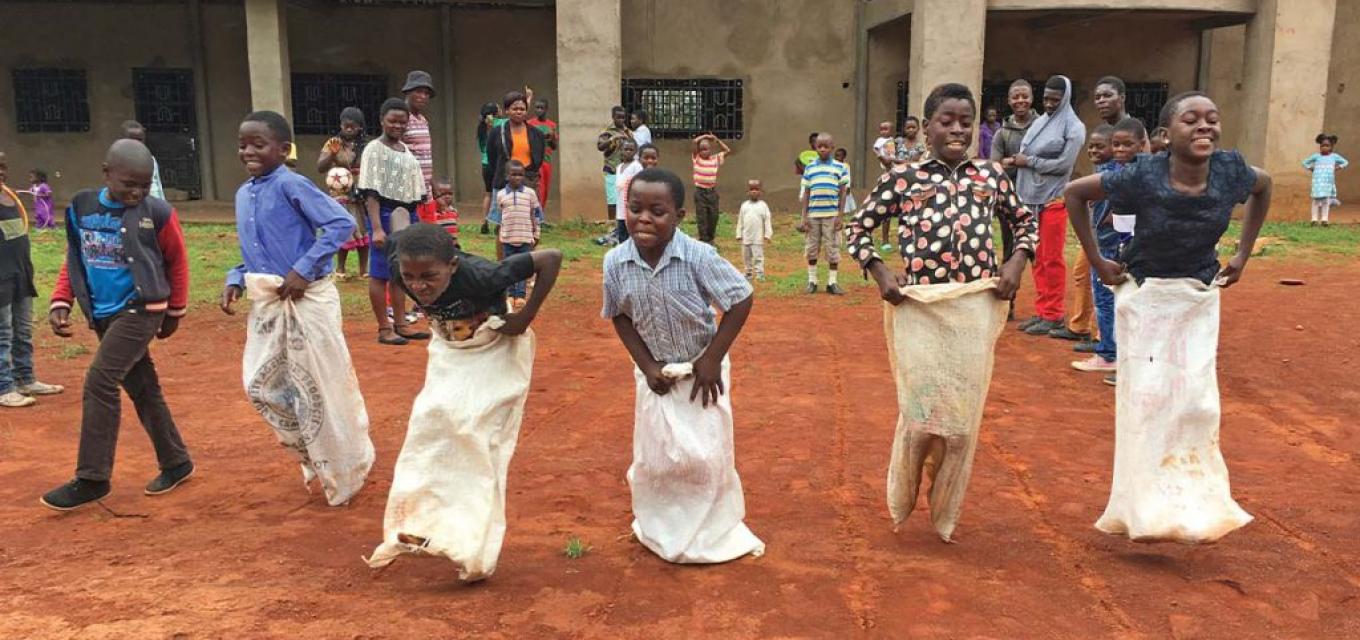
Enhancing understanding of the world
Mary T. Fellowship students build both skills and communities.
In designing graduate student programs, CEHD engages partnerships where students can build professional skills and support local areas at the same time.
“Central to our work is a deep commitment to supporting student learning while engaging local communities,” says Marina Aleixo, director of international initiatives.
A perfect example of this is the Mary Tjosvold Graduate Fellowship in Community Development, known colloquially as the Mary T. Scholars program. Named after alumnus Mary Tjosvold, the program sends graduate students internationally to participate in six-week, community-based professional internships in the areas of health, social work, microfinance, agriculture, and education.
For a time, Tjosvold served as national chair of the American Refugee Committee and found herself in many of the world’s war-torn areas such as Rwanda, Sierra Leone, and Uganda. While in Africa, she made a stop in Cameroon. “My day job is health care,” she says. “We have a lot of staff from Cameroon and they said ‘you should see our country.’ That started my relationship there.”
Over the next 15 years Tjosvold would help build a nursery and primary school, and support various NGOs in Cameroon. “I saw what a little bit of money and a little bit of experience can do to change people’s lives,” she says.
Later, she was asked to sit on the Dean’s Advisory Council at CEHD.
“We talked about international programs and how to get students to be more invested and engaged in the community,” Tjosvold remembers. “I said ‘I have a perfect idea. I could sponsor students to go to Cameroon.’”
Tjosvold could imagine a group of students living in Cameroon for a time and working with some of the local citizens and NGOs she knew. “Professors said this could work and within four months, students were on a plane.”
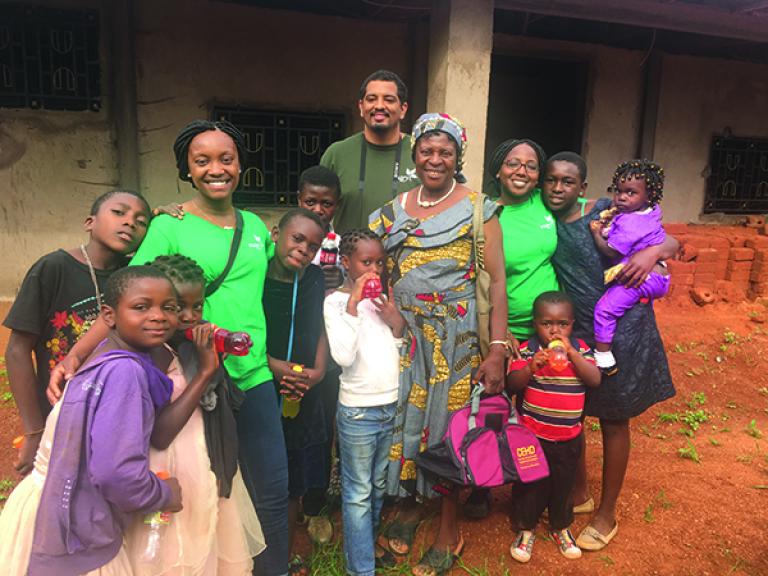
Between 2014 and 2017, CEHD sent 20 students to Bamenda, Cameroon, as Mary T. Scholars. One of those students was Tiffany Smith, who took part in the program in 2017. She is currently a sixth-year PhD student in comparative and international development education in the Department of Organizational Leadership, Policy, and Development. As international issues are so important to her work and life, Smith jumped at the opportunity when she first heard of the Mary T. Scholars program.
“I was excited about the fellowship because it fell on the 10th anniversary of my initial international experience—I studied abroad in South Africa in 2007,” she says. “Knowing that I wanted to conduct an international dissertation study, I saw this fellowship as a great opportunity to engage with teachers in Bamenda and to take note of some of the needs they faced in their educational systems.”
Smith helped organize a teacher training workshop where she provided resources to promote active engagement in the classroom. “The highlight was seeing many of the teachers moving and dancing around the room and shifting between the large sticky notes posted on the walls as they wrote answers to various questions,” she says. “Another highlight was participating in a discussion with various leaders in the community. We thought we’d be discussing education in general but the event resulted in passionate discourse about the politics in Bamenda.”
Smith’s experience was to be the last for CEHD students, as unrest in Cameroon came to a head in the fall of 2017. “The Ambazonia War in the region made it unsafe to continue the program, although we continue in contact with our local partners providing support and resources,” Aleixo says. “When it became clear Bamenda was no longer an option, we explored other opportunities to continue the fellowship.”
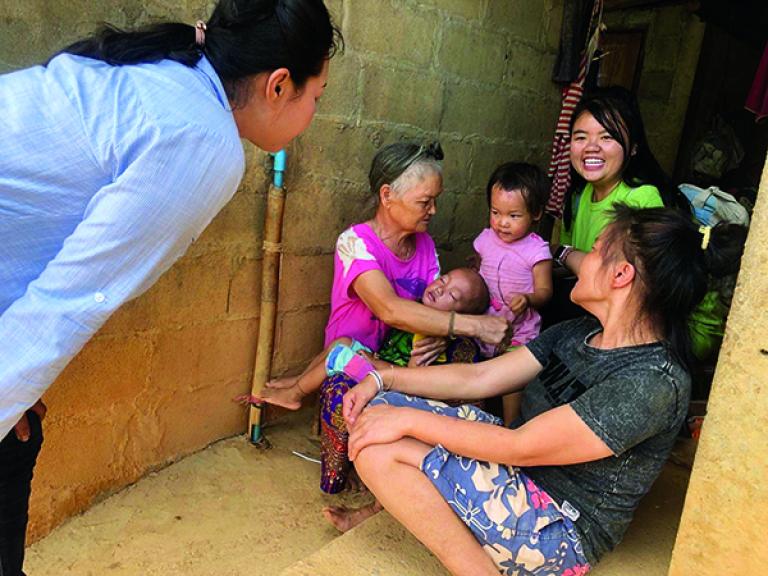
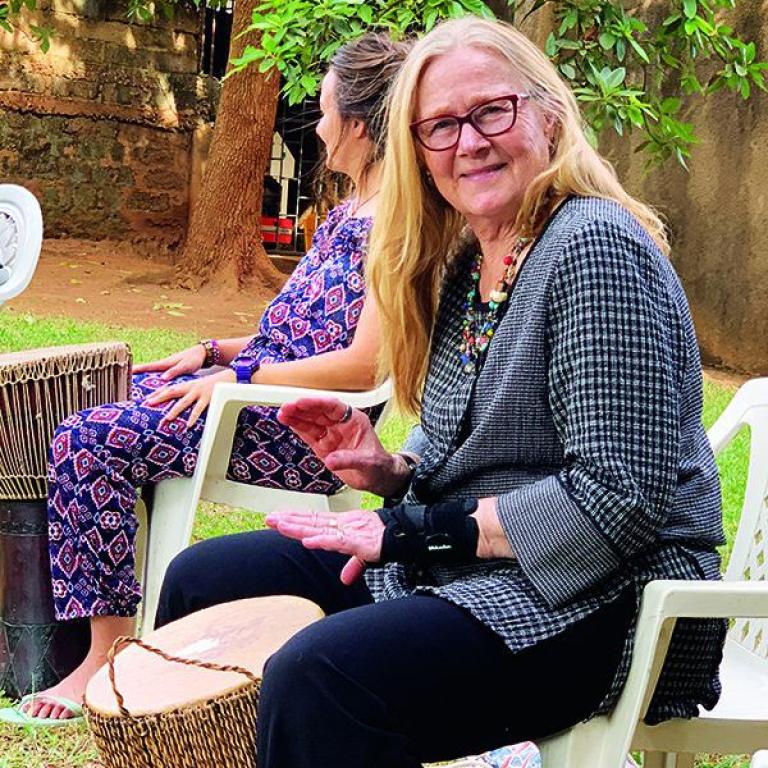
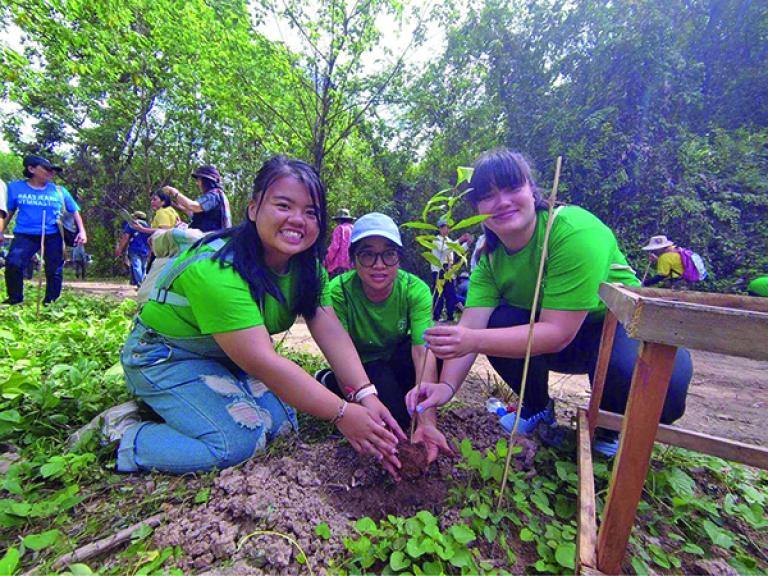
The program found new life in Thailand and, later, Uganda. Department of Family Social Science Professor Catherine Solheim had been collaborating with local partners in Thailand for nearly 30 years, and Tjosvold had established relationships in Uganda through her role as a board member of the Center for Victims of Torture. “It made sense for us to build on these existing relationships and use the fellowship as an opportunity to sustain and grow our exchange of knowledge, resources, and expertise,” Aleixo says.
Ka Vang, MEd ’20, went to Thailand in 2019 and worked with the Center for Girls Foundation in the Chiang Rai Province. “They host workshops where they bring together women in the town and village and teach them how to fight for their rights,” Vang says. “It was great to be a part of that and contribute to the things they’re doing for northern Thailand.”
Vang says she is appreciative of the experience because it allowed her to challenge herself and reflect on her life and her place and purpose for being there. Many of these thoughts inform her current work as an academic advisor at UMD for its Upward Bound Vision Quest program. “I connect my culture roots with a lot of work I do, so when I was doing the Mary T. program, I reflected on my Hmong culture and history and reflected on my job,” she says, adding that this self-knowledge better equips her to understand and help the students she works with on a daily basis.
“This program shaped a lot of my cultural identity,” she says. “I am very appreciative of all the people involved in it and able to make it happen. I hope it continues to happen.”
Tjosvold hopes it does too. “My vision is that the scholarship continues to grow and perpetuate,” she says.
Photos courtesy of International Initiatives, Marina Aleixo, Tiffany Smith, and Ka Vang
Learn more at cehd.umn.edu/international-initiatives/maryt-fellowship/.
-Kevin Moe